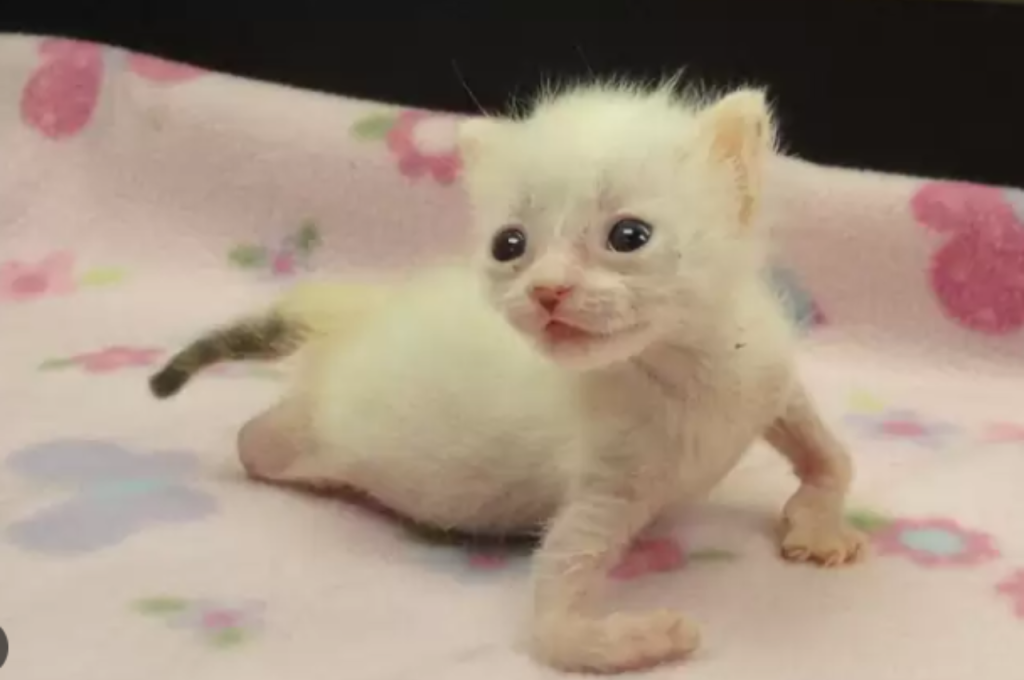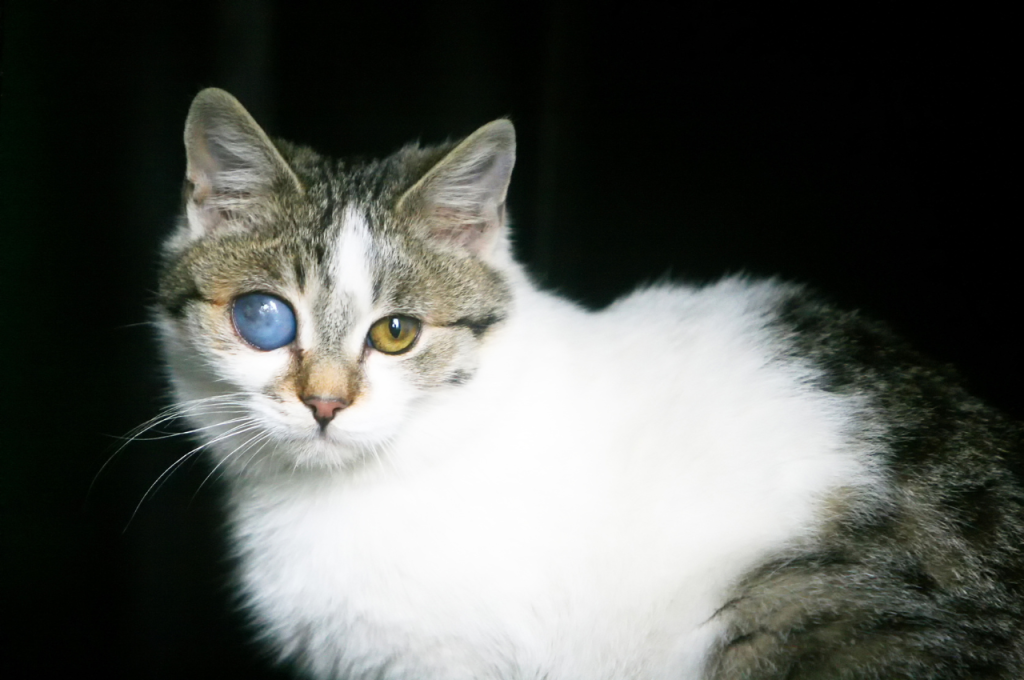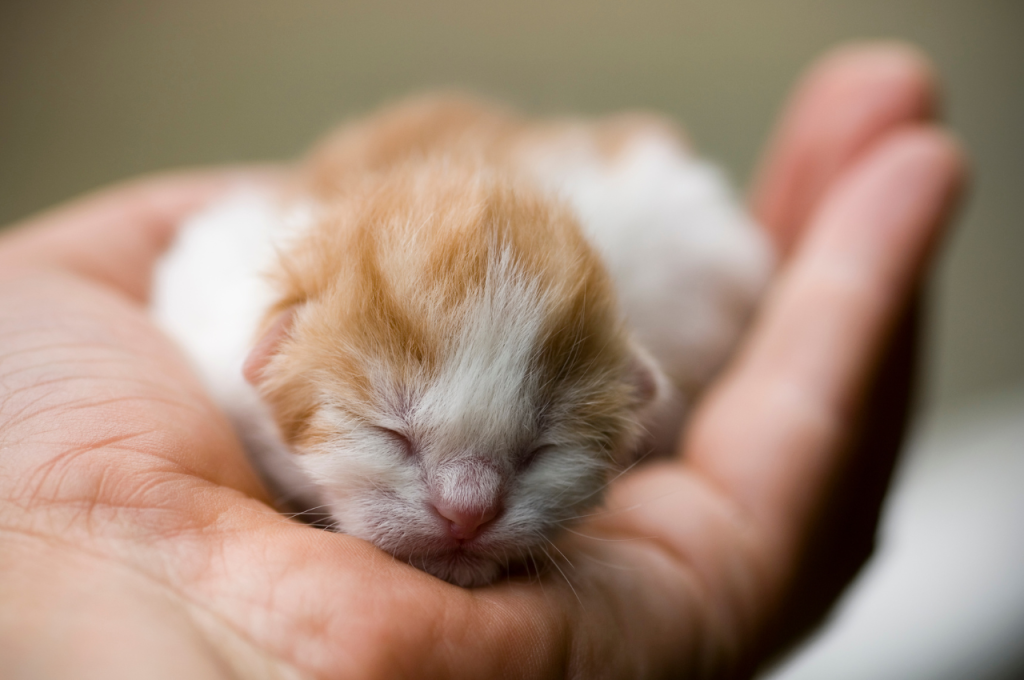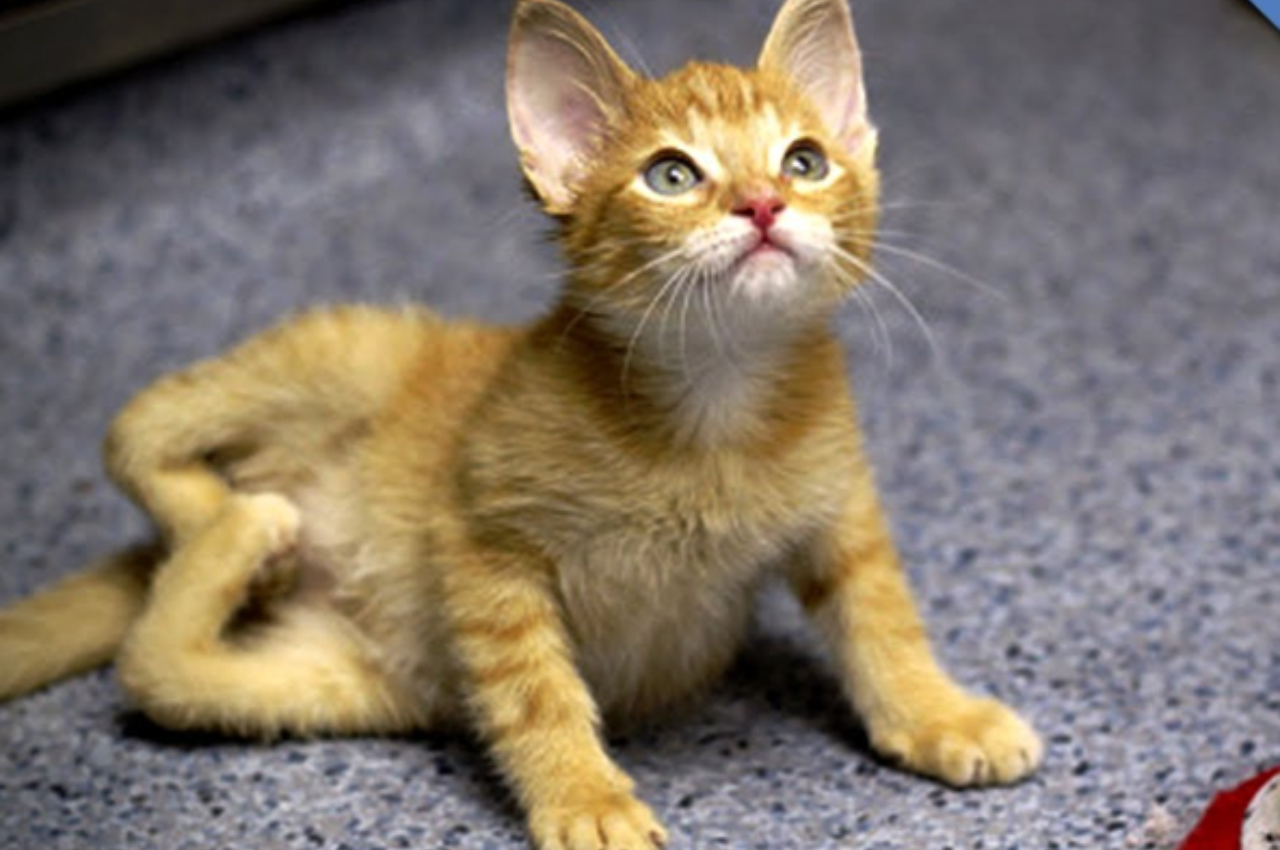Deformed kittens can be caused by genetic mutations or environmental factors. Bringing new life into the world is an exciting and rewarding experience, but it can be distressing and heartbreaking if your cat gives birth to deformed kittens.
Although it is uncommon, some kittens are born with physical abnormalities that can affect their health and quality of life. If you are wondering why your cat had deformed kittens, there could be several reasons. We will explore some of the possible causes of deformed kittens and what you can do to prevent them. Whether you are a breeder or a pet owner, understanding the risks and taking necessary precautions can help ensure that your cat gives birth to healthy, happy kittens.
Introduction To Feline Reproductive Complications
Feline reproductive complications can result in deformed kittens due to genetic abnormalities or infections during pregnancy. It is crucial to consult a veterinarian to determine the underlying cause and ensure the health of both the mother cat and her offspring. Regular veterinary care and genetic testing can help prevent such issues in the future.

The Joy And Challenges Of Kitten Births
Welcoming a litter of kittens into the world is a joyous occasion for any cat owner. However, the process of feline reproduction is not without its challenges. Feline reproductive complications can lead to deformed kittens, which can be heartbreaking for any owner. It’s important to understand the various factors that can lead to these complications to ensure the health and wellbeing of both the mother cat and her offspring.
Recognizing Abnormalities In Newborn Kittens
Recognizing abnormalities in newborn kittens is crucial for their survival. Common abnormalities include cleft palate, limb deformities, and congenital heart defects. These abnormalities can be caused by genetic factors, environmental factors, or a combination of both. As a responsible cat owner, it’s essential to monitor the kittens closely after birth and seek veterinary care immediately if any abnormalities are detected.
Preventing Feline Reproductive Complications
Preventing feline reproductive complications is essential for ensuring the health of both the mother cat and her offspring. Proper nutrition, regular veterinary care, and genetic testing can all help prevent complications during pregnancy and birth. It’s also important to spay or neuter your cat to prevent unwanted litters and reduce the risk of reproductive complications in the future. In conclusion, feline reproductive complications can be challenging, but with proper care and attention, they can be managed. Recognizing abnormalities in newborn kittens and taking steps to prevent complications can help ensure the health and wellbeing of your cat and her offspring. As a responsible cat owner, it’s essential to stay informed about feline reproductive health and seek veterinary care whenever necessary.
Genetic Factors Leading To Deformities
Genetic factors play a crucial role in determining the health and well-being of kittens. Understanding the impact of genetic disorders and inbreeding on kitten health is essential for responsible breeding and care. Let’s explore the genetic factors leading to deformities in kittens.
Inherited Genetic Disorders
Inherited genetic disorders can lead to a variety of deformities in kittens, including skeletal malformations, heart defects, and neurological abnormalities. These disorders are passed down from one or both parents and can result in serious health issues for the kittens. Responsible breeding practices and genetic testing can help identify and reduce the risk of passing on these genetic disorders.
Effects Of Inbreeding On Kitten Health
Inbreeding can have detrimental effects on kitten health, increasing the likelihood of genetic abnormalities and deformities. When closely related cats are bred together, the chances of inheriting harmful genetic traits are heightened. This can lead to a higher incidence of birth defects and health problems in the offspring. Breeding programs should prioritize genetic diversity to minimize the negative impact of inbreeding on kitten health.
Environmental Influences During Pregnancy
Environmental influences during pregnancy play a crucial role in the development of kittens in the womb. Various factors such as toxins, pollutants, and nutritional deficiencies can have a significant impact on the health and well-being of the growing kittens.
Impact Of Toxins And Pollutants
Exposure to harmful toxins and pollutants during pregnancy can lead to deformities in kittens. Substances such as pesticides, cleaning chemicals, and cigarette smoke can interfere with the development of the fetus, potentially causing physical abnormalities and health issues.
Nutritional Deficiencies And Their Consequences
Inadequate nutrition during pregnancy can have detrimental effects on the kittens’ development. Deficiencies in essential nutrients such as folic acid, vitamin E, and protein can result in birth defects and stunted growth. It is vital for the mother cat to receive a balanced diet to support the healthy growth of her offspring.
Infections And Diseases Affecting Feline Pregnancy
When it comes to feline pregnancy, it is essential to understand that infections and diseases can have significant impacts on the health and development of kittens. In some cases, these conditions can lead to deformities in newborn cats. By being aware of the common infections and viral diseases that affect feline pregnancy, cat owners can take preventive measures and seek timely veterinary care to ensure the well-being of their furry companions.

Common Infections And Their Impacts
During pregnancy, cats can be susceptible to various infections that can affect the health of their kittens. Here are some of the common infections and their potential impacts:
- Feline Panleukopenia: This highly contagious viral infection can cause severe damage to the developing fetuses, resulting in deformities or even death.
- Feline Herpesvirus: Also known as feline viral rhinotracheitis, this virus can lead to stillbirths, weak kittens, or ocular abnormalities in newborns.
- Feline Calicivirus: This respiratory virus can cause oral ulcers, pneumonia, and joint inflammation, affecting the overall health and development of kittens.
- Chlamydia felis: This bacterial infection can result in eye infections, respiratory issues, and even abortion in pregnant cats.
It is crucial to note that these infections can be prevented through proper vaccination protocols and maintaining a clean and sanitary environment for the mother cat during pregnancy.
Viral Diseases Leading To Kitten Deformities
Viral diseases can also have devastating effects on feline pregnancy, potentially leading to deformities in kittens. Here are some viral diseases that can cause such complications:
- Feline Immunodeficiency Virus (FIV): This retrovirus weakens the immune system of infected cats, making them more susceptible to other infections that can impact the health of their offspring.
- Feline Leukemia Virus (FeLV): FeLV can lead to a range of reproductive issues, including fetal resorption, stillbirths, and developmental abnormalities.
- Feline Infectious Peritonitis (FIP): Although rare, FIP is a severe and fatal viral disease that can affect pregnant cats, potentially leading to fetal resorption or deformities in surviving kittens.
Preventing these viral diseases through vaccination, regular veterinary check-ups, and minimizing exposure to infected cats is crucial to ensure the healthy development of kittens during pregnancy.
Physical Trauma And Stress
Physical trauma and stress can have a significant impact on the development of kittens during pregnancy. Understanding the potential effects of accidents and maternal stress is crucial in addressing the factors that may lead to deformed kittens.
Accidents During Pregnancy
Accidents involving the mother cat during pregnancy can result in physical trauma that affects the developing fetuses. Injuries sustained by the mother can have direct consequences on the health and proper development of the kittens. Trauma to the abdomen or impact injuries can lead to deformities or developmental issues in the kittens.
The Role Of Maternal Stress In Fetal Development
Maternal stress can influence fetal development, potentially leading to abnormalities in newborn kittens. Elevated stress levels in the mother cat may disrupt the normal development of the fetuses, resulting in a higher likelihood of deformities or health issues in the kittens. Hormonal changes caused by stress can impact the development of the kittens’ organs and body systems.
Medications And Chemical Exposure
When it comes to ‘Medications and Chemical Exposure’, there are potential risks that can lead to deformed kittens. Let’s explore how certain medications and household chemicals can impact the health of pregnant cats:
Risks Of Certain Medications During Pregnancy
Some medications can pose risks to pregnant cats, potentially causing deformities in kittens. Always consult a veterinarian before administering any medication to your pregnant cat.
Household Chemicals And Their Potential Harm
Household chemicals can be harmful to pregnant cats and their developing kittens. Ensure your cat is kept away from toxic substances to prevent deformities.
Preventive Measures And Care
To prevent deformed kittens, ensure your cat has proper nutrition, regular veterinary care, and avoid inbreeding. Genetic defects can lead to deformities, so responsible breeding practices are crucial for ensuring healthy litters. Regular vet check-ups can help identify and address any potential issues early on.
Importance Of Veterinary Care During Pregnancy
Regular vet check-ups are crucial during pregnancy to ensure cat health.
Nutrition And Environment For A Healthy Pregnancy
Provide a balanced diet and stress-free environment for a healthy pregnancy. Ensure the mother cat receives proper nutrition and has a calm space. Maintain a clean environment to prevent infections and promote well-being. Consult the veterinarian for dietary recommendations and pregnancy care. By following these preventive measures and providing proper care, you can help ensure the health and well-being of both the mother cat and her kittens.
Case Studies And Veterinary Insights
Discover valuable insights into why your cat may have had deformed kittens through our case studies and veterinary expertise. Gain a deeper understanding of the possible causes and find helpful information to ensure the health and well-being of your feline companion.

Real-life Cases Of Kitten Deformities
In one case, a cat had a litter of kittens with extra toes. Another case involved kittens born with cleft palates.
Expert Opinions On Prevention And Treatment
Veterinarians recommend genetic testing for breeding cats.Proper nutrition during pregnancy is crucial for healthy kittens.Early detection of deformities allows for timely interventions.
Conclusion
Understanding why your cat had deformed kittens is crucial for their health. By recognizing potential causes such as genetics, infections, or nutrition, you can take preventive measures. Consult with a veterinarian for guidance on ensuring the well-being of future litters.
